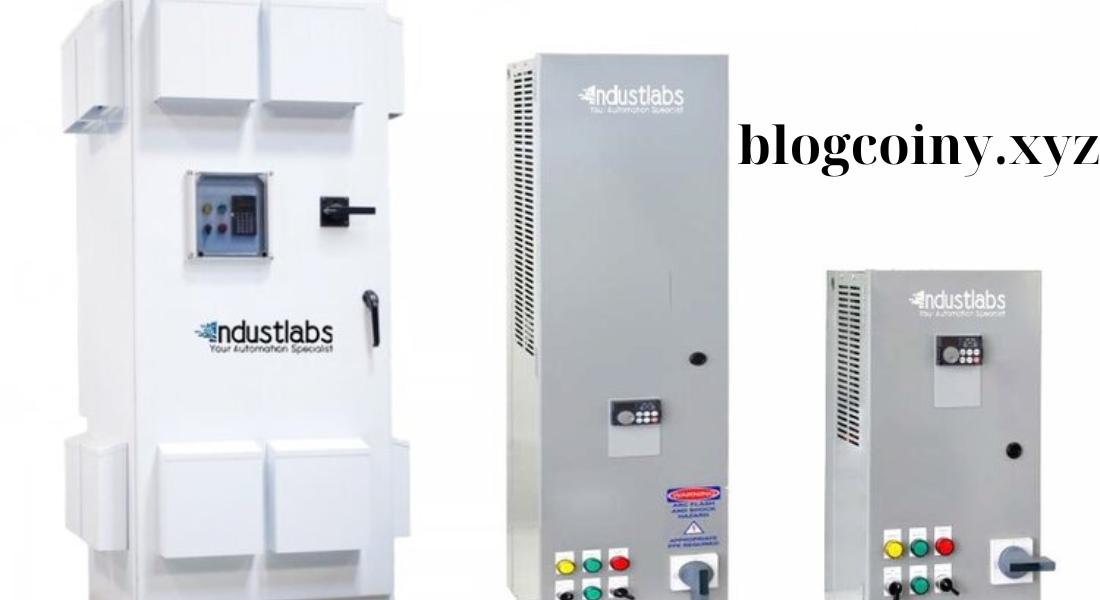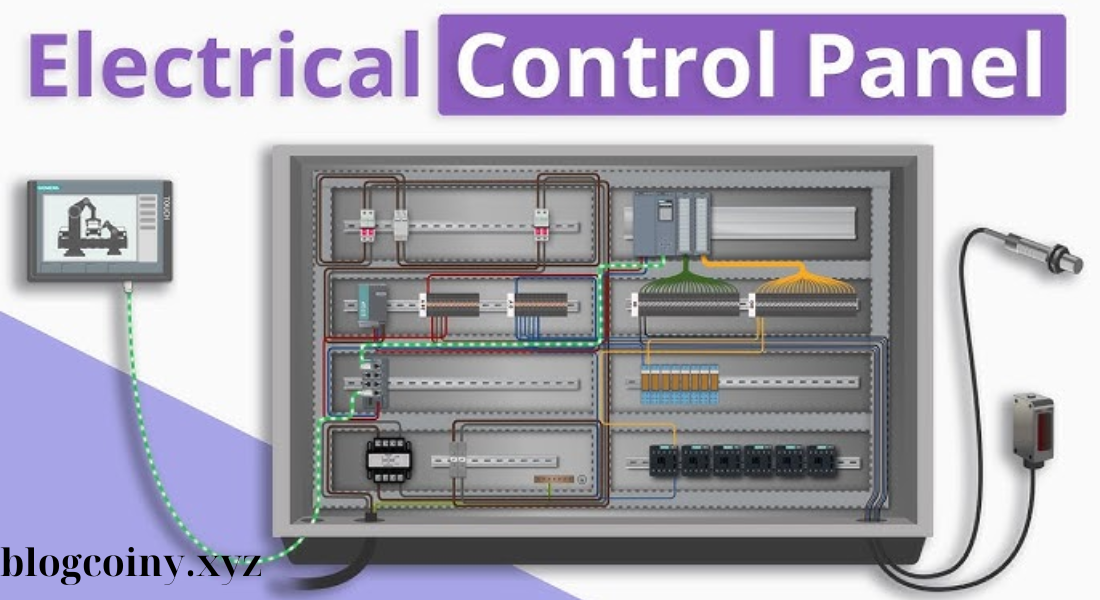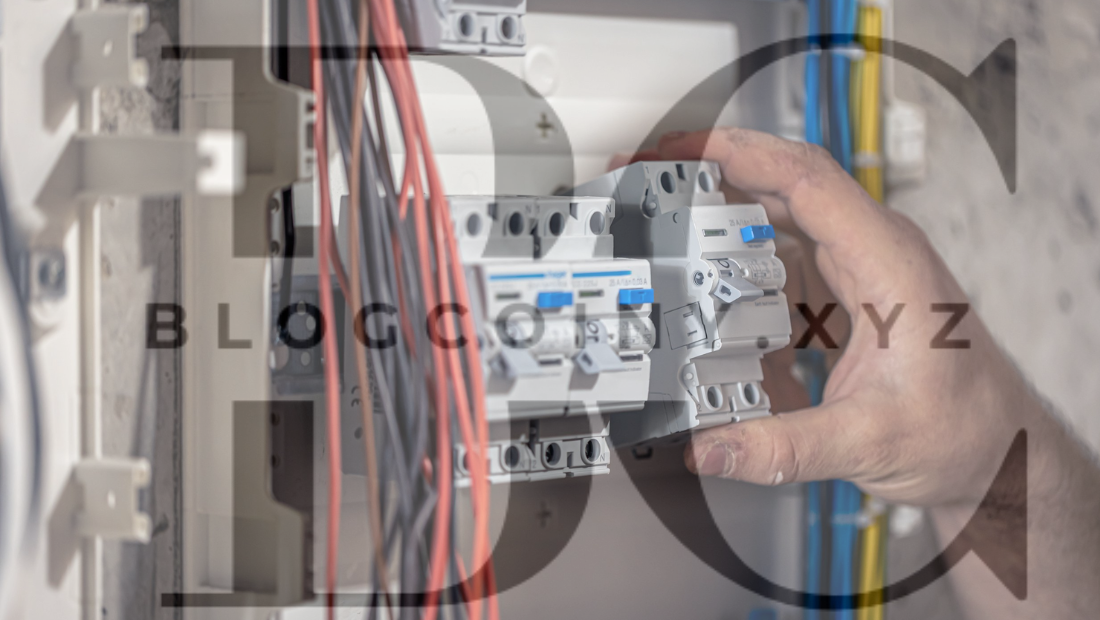Introduction to Electrical Control Panels
Electrical Control Panels are the backbone of modern automation systems, playing a crucial role in managing electrical systems across industries. They serve as centralized hubs that control and monitor machinery, ensuring operational safety, efficiency, and precision. Designed to hold various electrical components such as switches, circuit breakers, and fuses, these panels facilitate easy access and reliable control over equipment.
What is an Electrical Control Panel?
An Electrical Control Panel is an enclosed system housing electrical components that control the functioning of industrial equipment. Found in manufacturing, power plants, and commercial settings, these panels ensure that machinery operates under regulated conditions, enhancing efficiency and reducing risks.
Typically, Electrical Control Panels consist of two main sections:
- Control Section: This houses the main control mechanisms, such as programmable logic controllers (PLCs) and other automated systems.
- Power Distribution Section: Here, power is distributed to various devices within the facility through circuit breakers, relays, and fuses.
Importance of Electrical Control Panels in Industrial Settings
Electrical Control Panels provide a safe and efficient way to manage complex electrical systems. They reduce the risk of electrical faults and enhance the smooth operation of industrial equipment. Additionally, they help:
- Streamline Operations: By centralizing control, Electrical Control Panels make it easy to manage multiple machines from a single location.
- Enhance Safety: These panels are equipped with safety mechanisms to protect both the machinery and operators.
- Reduce Downtime: Quick troubleshooting and control help minimize equipment downtime.
Key Components of Electrical Control Panels
Understanding the key components of Electrical Control Panels is crucial for selecting the right setup. Key elements include:
- Circuit Breakers: Protect the panel from electrical overloads by interrupting the current flow.
- Relays: Act as switches to control high-power circuits with low-power signals.
- Terminal Blocks: Allow for safe and organized connections between various panel components.
- Programmable Logic Controllers (PLCs): Essential for automating complex industrial processes.
- Human-Machine Interface (HMI): Provides a user-friendly interface for monitoring and controlling the panel.
- Transformers: Step down or up voltage levels, ensuring components receive the correct voltage.
Types of Electrical Control Panels
Electrical Control Panels come in various types, each designed for specific applications:
1. Motor Control Panels (MCC Panels)
Motor Control Panels manage and control electric motors. These panels are vital in industries where multiple motors are used, such as manufacturing plants.
2. Power Distribution Panels
These panels distribute electricity from a primary power source to various circuits within a facility. They are commonly found in commercial and industrial buildings, ensuring that different sections have adequate power.
3. Automation Panels
Automation Panels incorporate PLCs and HMIs for fully automated processes. They are often found in industries where high precision and real-time monitoring are essential.
4. Relay Control Panels
Relay Control Panels are basic control panels that operate on relay logic. While they may not be as advanced as PLC panels, they are ideal for simple applications.
Designing an Electrical Control Panel
Designing Electrical Control Panels involves detailed planning, as these systems must be reliable, efficient, and safe. Key considerations include:
- Component Selection: Choosing high-quality components ensures long-term reliability and performance.
- Wiring and Layout: A clear layout simplifies maintenance and troubleshooting.
- Safety Protocols: Panels should be equipped with appropriate safety features, such as grounding and surge protection.
- Cooling Systems: To prevent overheating, Electrical Control Panels often include cooling fans or air conditioning systems.
Installation and Maintenance of Electrical Control Panels
Proper installation and maintenance are crucial for ensuring the longevity and performance of Electrical Control Panels. Here are the main steps:
- Site Preparation: Ensure the installation site is suitable for panel mounting and is free from moisture, dust, and extreme temperatures.
- Panel Mounting: Secure the panel in a location that allows easy access while maintaining safety.
- Cable Connections: Follow wiring diagrams precisely to ensure correct connections.
- Safety Checks: Perform safety checks to verify grounding, surge protection, and insulation.
- Regular Inspections: Schedule routine inspections to detect potential issues early, such as loose connections or signs of wear.
- Updating Firmware: For panels with PLCs or HMIs, keep the firmware updated to benefit from improved features and security.

Benefits of Using Electrical Control Panels
The benefits of incorporating Electrical Control Panels in industrial and commercial settings are numerous:
- Enhanced Efficiency: Automation and centralized control lead to improved operational efficiency.
- Reduced Downtime: Fault detection and easy access reduce maintenance time and production interruptions.
- Improved Safety: Control panels come with multiple safety features to protect both equipment and personnel.
- Cost-Effectiveness: Although an initial investment, Electrical Control Panels can reduce long-term costs by minimizing wear and tear on machinery.
Safety Measures and Standards for Electrical Control Panels
Electrical Control Panels are subject to various safety standards to prevent accidents and ensure compliance with industrial regulations. Common safety standards include:
- National Electrical Code (NEC): Ensures that the panel complies with electrical safety codes in the United States.
- UL Certification: UL-listed panels meet rigorous safety standards, particularly for high-voltage applications.
- OSHA Guidelines: In the United States, OSHA provides guidelines for safe operation and maintenance of electrical panels in workplaces.
- International Electrotechnical Commission (IEC) Standards: IEC standards cover a broad range of safety and performance requirements for control panels used internationally.
Choosing the Right Electrical Control Panel
Selecting the right Electrical Control Panel depends on various factors, including:
- Application Requirements: Different industries have different needs; for example, manufacturing plants may require motor control panels, while data centers might prioritize power distribution panels.
- Load Capacity: Ensure that the panel can handle the load requirements of your equipment.
- Environmental Conditions: Consider panels with weatherproof or explosion-proof enclosures if used in harsh environments.
- Automation Level: For industries focused on precision and speed, automated control panels with PLCs and HMIs are recommended.
Common Issues with Electrical Control Panels and Troubleshooting Tips
Despite their durability, Electrical Control Panels can face issues due to factors such as wear and environmental conditions. Common problems include:
- Overheating: Ensure proper ventilation or install a cooling system to prevent component failure.
- Loose Connections: Regularly inspect connections to avoid short circuits and potential equipment damage.
- Power Surges: Install surge protection devices to guard against unexpected power spikes.
- Faulty Relays or Circuit Breakers: Replace faulty components promptly to avoid interruptions in operation.
Future Trends in Electrical Control Panels
With technological advancements, Electrical Control Panels are also evolving. Emerging trends include:
- Smart Panels: Integrated with IoT capabilities, smart control panels allow remote monitoring and control.
- Energy-Efficient Panels: Panels designed with energy efficiency in mind help reduce overall power consumption.
- AI-Enhanced Automation: Incorporating artificial intelligence into Electrical Control Panels enables predictive maintenance and real-time optimization.
Conclusion
Electrical Control Panels are indispensable in today’s industrial and commercial operations, ensuring safe, efficient, and automated processes. From selecting the right components to adhering to safety standards, understanding the essentials of these control panels can help businesses make informed decisions. As technology advances, the future of Electrical Control Panels promises even greater efficiency, connectivity, and reliability.











Leave a Reply